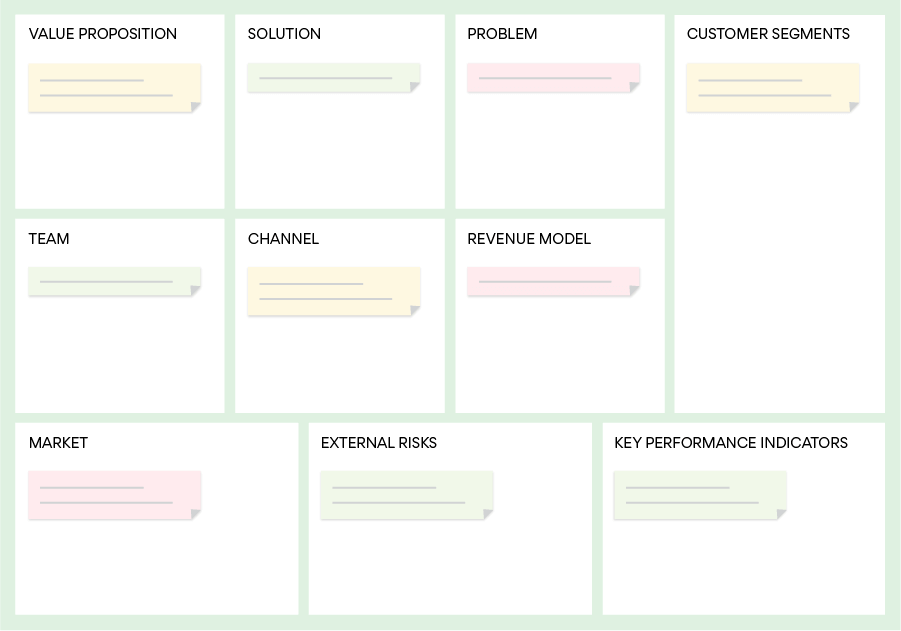🌎 Upmetrics is now available in
English
Français
Deutsch
Español
Italian
Portuguese
🌎 Upmetrics is now available in
English
Français
Deutsch
Español
Italian
Portuguese

The Startup Canvas is designed to start sketching initial ideas for a business idea.
It is also called a one-page business plan template for StartUps. There is a certain limitation with writing a business plan, Most people hate writing business plans. They take too long to write. You end up making up most of the answers. And worst of all, the people who make you write these plans (i.e. investors), don’t even take the time to read them — opting instead for shorter versions like the 1-page executive summary, 10-page slide deck, or 30-second elevator pitch.
The Startup canvas solves this problem, It’s a quick and easy way to write a business plan. It’s a framework to define your startup easier and faster by Value proposition, Problem, Solution, Market, Team, Marketing Channels, Customer Segment, External Risks, and Key Performance Indicators.
We are using a customer-centric approach, We should start with the Customer Segment as a first step along with Problem. List your target customers and/or Users.
For the customer segment, you are working with, describe the top 1-3 problems they need to be solved.
This is the most important section of your startup model. The unique value proposition is a single, clear compelling message that states why you are different and worth buying.
The StartUp Canvas adopted from Lean Canvas. Ash Maurya doesn’t recommend getting carried away with fully defining a solution just yet. Rather simply sketch out the top 3 features your product has.
Market size is the most important factor for a startup to put on the canvas. Is your market new, existing or re-segmented?
Is it worth building a product? it’s just as critical to start finding, building, and testing a significant path to your customers from day one. Describe marketing channels both inbound and outbound strategies. This also includes pricing strategies as well.
Revenue Depends on your pricing strategy. Describe revenue streams with a breakeven point.
Brief about top 3 external Risks.
Key Performance Indicators (KPIs) are the elements of your plan that express what you want to achieve by when. For Example one of the Financial KPI is Growth in Revenue.
List out key members of your workforce. These include Founders, Co-Founders, Partners, Investors, Advisers, and other employees.
The StartUp Canvas is also majorly meant for Ideation Stage StartUp and not the Lean startups, customers, consultants, investors or advisers. It has no specific medium of implementation and you can use it first and then shift to the Lean Canvas or either way.

Capture Your Business Model on One Page